Education
Students and faculty demand Columbia University stand up to federal government
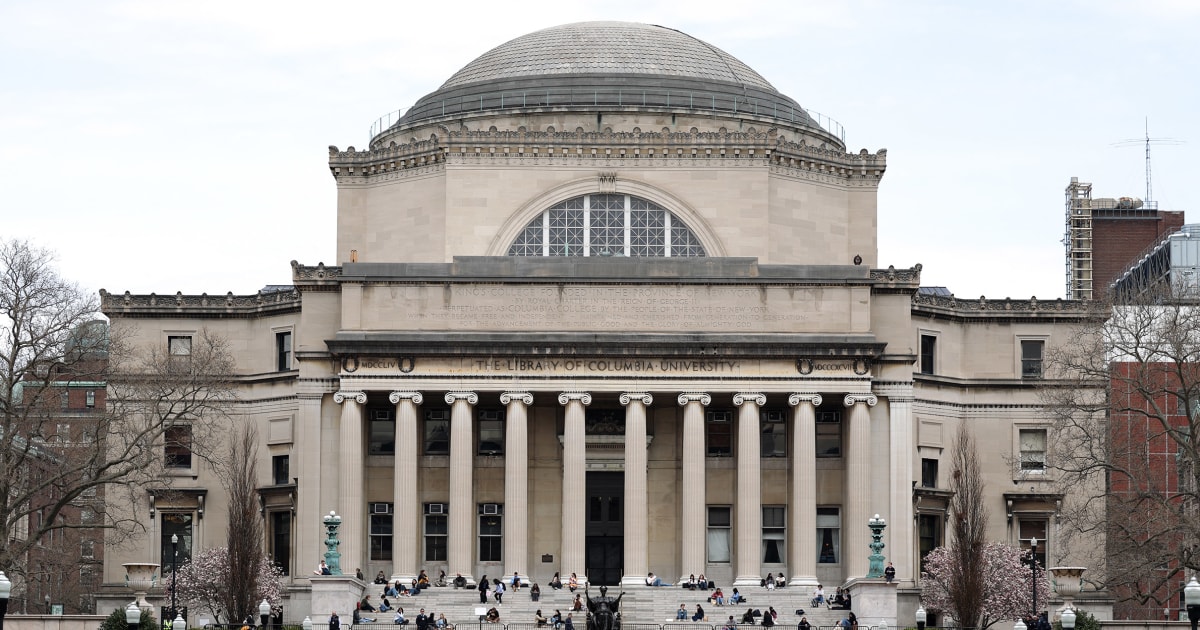
Columbia University students, faculty, staff and alumni launched a “speak out” Monday to criticize school leaders for bowing to the Trump administration’s demands after it pulled $400 million in federal funding from the campus.
Hundreds of students, faculty, staff and alumni were expected to take part in the 25-hour event that organizers said was intended to amplify a growing position within the Columbia community that the school administration had caved-in to Washington and that the school’s academic freedom was under attack.
The administration has paused billions of dollars in federal grants and research funding at universities nationwide to target what it describes as a failure to deal with antisemitism and its handling of protests against Israel’s military action in the Gaza Strip.
“All of us have dedicated our lives to both a continual process of learning but also educating,” Brooke West, a professor of social work at Columbia said, as dozens of students walked by. “But how can we do that when our students, when our institutions and academic freedom and free speech are under attack?”
Columbia was the first university the administration targeted, and it conceded to several requests, including adjusting its admissions process and implementing “greater institutional neutrality.”
White House spokesman Harry Fields said Monday that some universities failed to protect Jewish students and violated the law.
“Universities’ violation of federal law, due to their blatant reluctance to protect Jewish students and defend civil rights, is unbecoming of institutions seeking billions in taxpayer funds,” Fields wrote in an email. “The Trump Administration remains committed to reforming higher education and combating anti-Semitism.”
The Trump administration told the university last month that it would reinstate the school’s federal funding if it met certain demands, including banning masks on campus and holding disciplinary hearings for student protesters
Students and faculty said they had some demands of their own for the university: fight back against federal attacks; protect and defend students and international scholars; re-establish diversity policies; and protect researchers.
Professors at the rally hoisted signs reading, “Columbia Fight Back,” “Defend Freedom of Speech” and “Protect our Students.”
Authorities have apprehended at least three Columbia students in recent weeks, including graduate student Mahmoud Khalil, who was involved in student protests last year.
Education
1 dead, 6 wounded in shooting at Elizabeth City State University
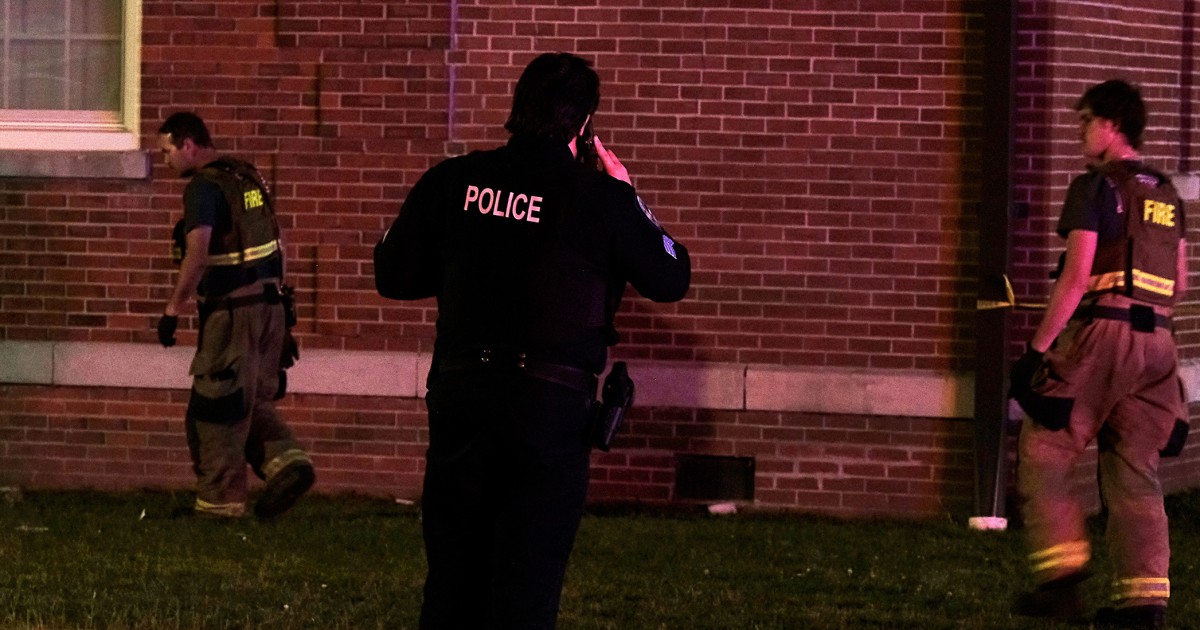
ELIZABETH CITY, N.C. — A shooting at a small college in eastern North Carolina left one person dead and six others wounded and prompted a campus lockdown early Sunday, the university said.
The shooting occurred in the center of Elizabeth City State University’s campus following Yard Fest, the final event of the historically Black university’s weeklong Viking Fest celebration, the school said in a statement.
A 24-year-old man who was not a student was pronounced dead. His identity wasn’t immediately released pending notification of his family, the statement said.
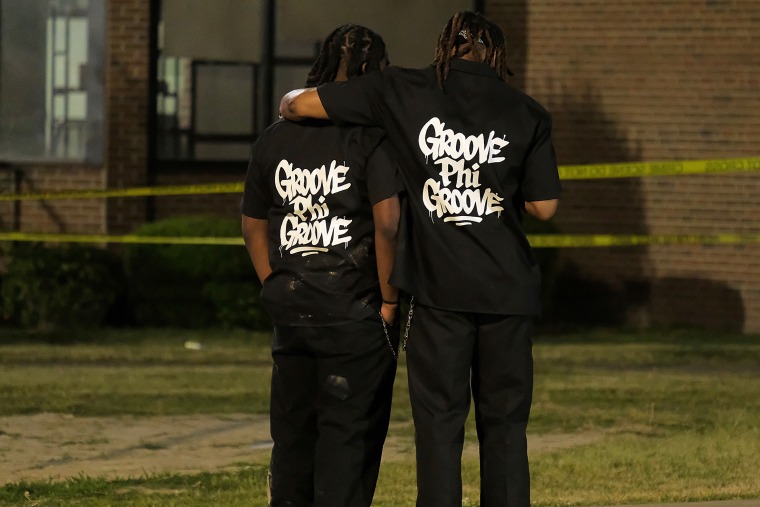
Four people sustained gunshot wounds, including three students, while two other students were injured during the commotion. None of the injuries were considered life-threatening. All the injured were taken to a hospital for treatment, the statement says.
A call to campus police was referred to a university spokesperson, who didn’t immediately return a telephone message.
“The university is deeply saddened by this senseless act,” the university said in an earlier statement.
The lockdown was later lifted, and the university increased patrols across campus as a precaution. Access to the center of campus remained restricted later Sunday.
The university has 2,300 students and is about 50 miles south of Norfolk, Virginia.
Education
Havard students and faculty face the fallout from a showdown with Trump

After freezing $2.2 billion in funding, the Trump administration has also singled out Harvard in other key ways: It threatened the university’s nonprofit status and its ability to host international students and faculty, who comprise roughly a quarter of the student body and help fuel research in every part of the school.
Some faculty expressed concern that Harvard would no longer be able to attract top talent. “This is the United States saying to the best and brightest minds around the world that you are not welcome,” said Tarek Masoud, a professor of democracy and governance at the Harvard Kennedy School.
Abdullah Shahid Sial, the undergraduate student body co-president, came to Cambridge from Lahore, Pakistan, hoping to work with the “greatest professors in the world.” Now, he’s written an op-ed to run in The Harvard Crimson in case he is deported for speaking out. “If at any point they want me out, then I would rather go in a much more dignified manner,” he said.
One Harvard scientist was detained and at least 11 other people affiliated with the university have lost their visas in recent weeks, though some were restored by the government on Friday.
In an interview Wednesday, two days after the university filed suit to try to win back its federal funding, Harvard President Alan Garber stood by the school’s decision to take a stand.
“It’s bigger than Harvard,” Garber told “NBC Nightly News” anchor Lester Holt. “We are defending what I believe is one of the most important linchpins of the American economy and way of life — our universities.”
Harrison Fields, a White House spokesperson, criticized the university’s response. “Colleges are hooked on federal cash, and Mr. Garber’s public outburst only fuels the push to shut off the taxpayer money propping up their institution,” he said.
With final exams and graduation now looming, many are bracing for a prolonged battle that could have reverberations for years to come.
Steven Pinker, a well-known psychology professor, co-founded the Council on Academic Freedom at Harvard to promote “free inquiry, intellectual diversity and civil discourse.” He agrees with criticism that Harvard needs more viewpoint diversity but thinks the government’s demands go way too far, he said.
Harvard was told, among other demands in an April 11 letter, to increase viewpoint diversity among faculty and students (subject to the government’s approval), submit its hiring to a federal audit for more than three years, and use an ideological test on admissions for international students.
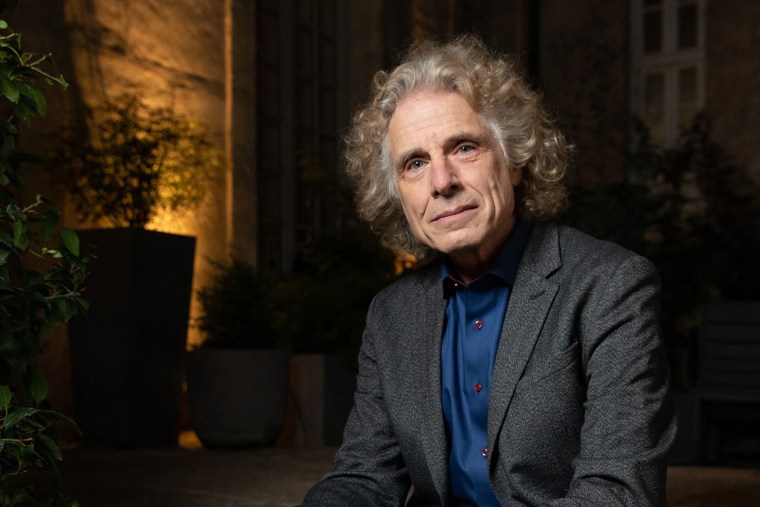
“I just don’t think Donald Trump has the statutory power to force his vision of viewpoint diversity on private universities,” Pinker said. “Could that mean that we have to have anti-vaxxers in the medical school? Does it mean we have to have ‘Stop the Steal’ theorists in the history department? MAGA theorists in political science programs? You just don’t want to give the government the power to make those decisions.”
When Harvard refused to comply, the Trump administration doubled down. In a letter sent April 16, the U.S. Department of Homeland Security demanded that Harvard provide the names of all international students who have “participated in protests” and their “disciplinary records,” with a deadline of April 30, after which it threatened to revoke Harvard’s ability to host international students.
Harvard has not yet said how it will respond and didn’t reply to questions about its plans.
Some international students feel caught in the crossfire between Harvard and the Trump administration.
“We’re being used as poker chips in a battle with the White House,” said Leo Gerdén, a senior from Stockholm, Sweden. “None of us wanted to take this fight.”

Sial, the student body co-president, is now working with administrators to ensure summer housing on campus for the increased number of international students planning to bunker down in Cambridge out of fear they’ll be prevented from re-entering the country.
Several other international students spoke on the condition of anonymity to avoid threatening their student visa status. They described this moment at Harvard as a doubly difficult: Already under threat of losing their visas — like more than 1,800 international students and recent graduates reportedly have nationwide, prior to the administration’s reversal this week — they’re also at the school that Trump is most closely scrutinizing.
One international law student said she won’t walk near protests, has taken down her social media profiles or made them private and looked into finishing her degree abroad. She keeps emergency hotline numbers and her passport with her at all times in case she is approached.
“I have no disciplinary record. I have no criminal record. I have nothing. And I’m a good student,” she said. “And, sure, I care about things, but that’s why you come to law school.”
An international environmental studies student said they now plan to leave the country once they finish their degree.
“I’m just trying to protect rivers and waterways and the environment,” they said, “and I don’t feel particularly wanted here.”
They regularly have to visit different states to conduct surveys but say they are now more fearful of travel.
“Just having the Harvard international student label on me,” they said, “it makes me a lot more anxious about being around airports or being around security.”
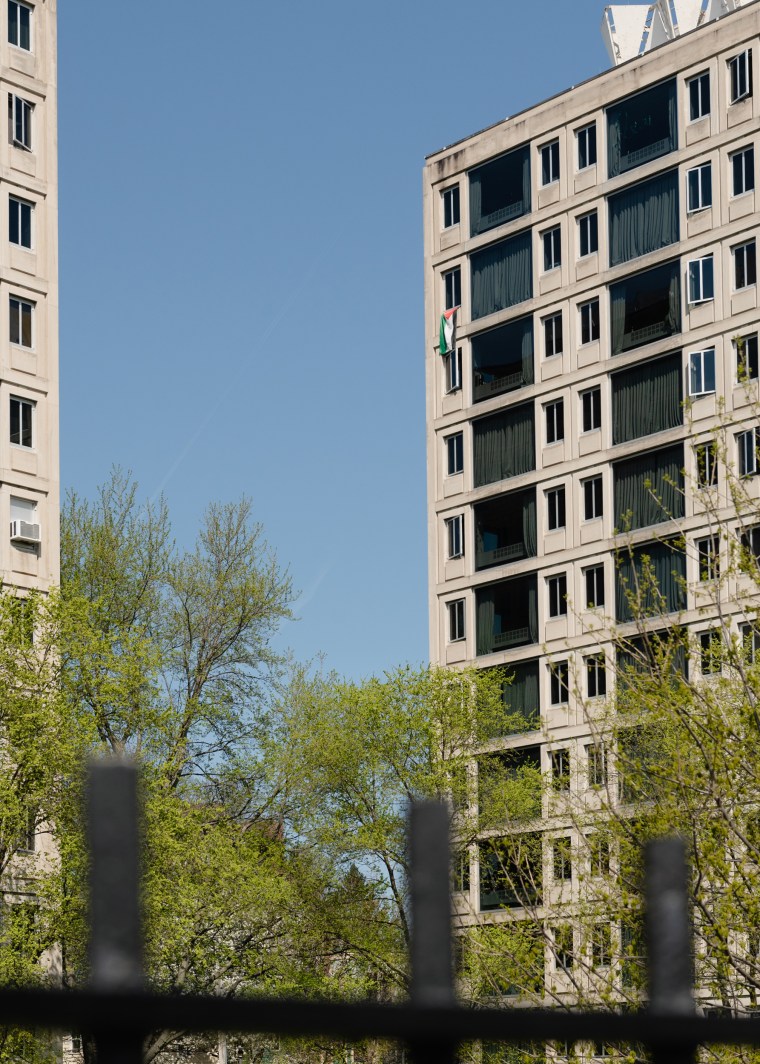
An undergraduate international student who attended last year’s Harvard encampment and got doxed for their pro-Palestinian activism said they moved off campus and stopped attending classes in person for two weeks, triggered by the detention of Tufts University graduate student Rumeysa Ozturk. They have canceled an academic trip to Europe and skipped out on iftars during Ramadan — communal meals where Muslims break their fast during the Islamic holy month — worried that ICE might target such gatherings.
“I don’t feel safe at all being around protests and voices, which actually kills me from the inside, because I want to go there, and I want to voice my opinion,” they said.
Though some students applauded Harvard’s stand against Trump, others have mixed feelings about the school’s response thus far.
Three students said the university had already acquiesced to some extent, even before the April 11 letter. They pointed to the firing of the Center for Middle Eastern Studies’ faculty heads, suspending the Harvard Divinity School’s long-standing Religion, Conflict and Peace Initiative, and pausing the School of Public Health’s research partnership with a Palestinian university.
Harvard didn’t respond to questions about these concerns. But Masoud, of the Harvard Kennedy School, said he thought those changes would have happened even if Trump hadn’t been elected.
Education
Columbia protesters are a no-show after plans for new encampments were revealed
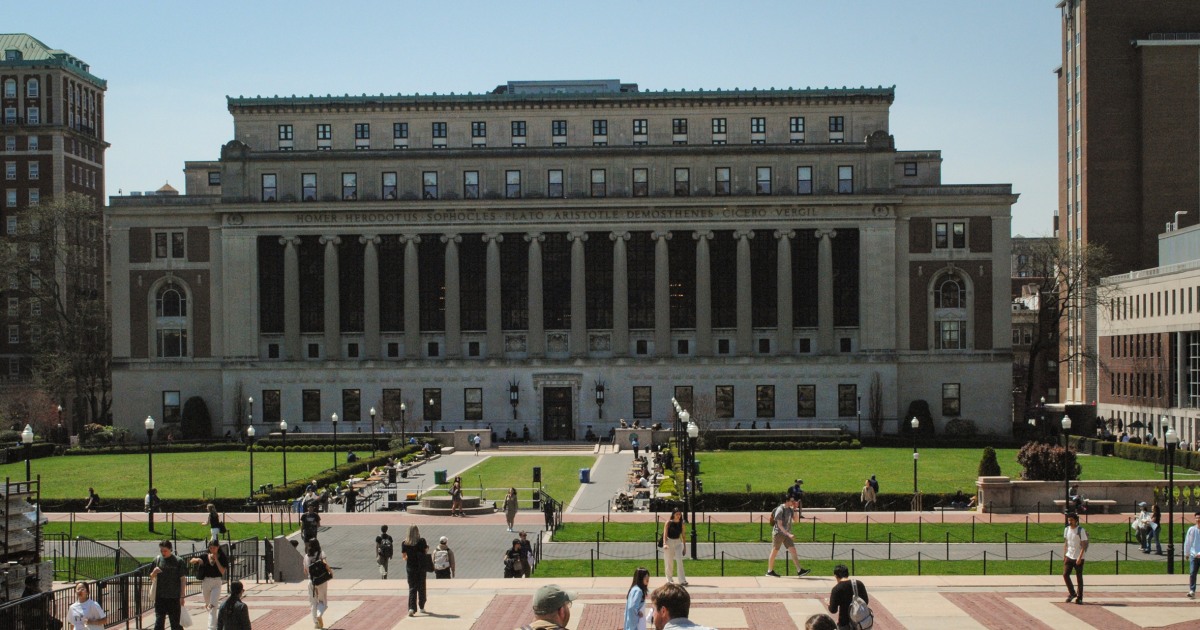
Protesters did not set up new tent encampments or demonstrate against the war in Gaza at Columbia University on Thursday as planned.
NBC News reported Wednesday that a group planned to set up tent encampments on the New York City school’s main campus Thursday afternoon.
The encampments would have been likely to inflame tension at the Ivy League school, which for weeks has been at the center of a tug-of-war between the federal government and its students.
They would have been the first tent cities at the university since students took over a building last year and since the Trump administration embraced an aggressive approach to target what it describes as a failure to deal with antisemitism on college campuses.
More than 100 protesters met Tuesday at a community center in Brooklyn’s Bushwick neighborhood to coordinate tent encampments at Columbia for this week. Organizers, whose identities remain unknown, went to extreme lengths to conceal their plans.
NBC News obtained a recording of the meeting, which revealed that students were planning an encampment Thursday at the university’s main campus in Manhattan’s Morningside Heights neighborhood and a second encampment Friday at the nearby Manhattanville campus.
It is unclear whether the encampment planned for Friday will proceed.
Instead of protests Thursday, the scene on campus included students enjoying one of the first warm days in New York City this spring. Dozens of students lay out beach towels, snapped selfies under the sun and tossed around Frisbees.
There were, however, signs of what the day was expected to bring.
Outside the university gates on 116th Street and Broadway, several New York police officers gathered — but they were gone by 2 p.m., an hour after the protests had been expected to begin.
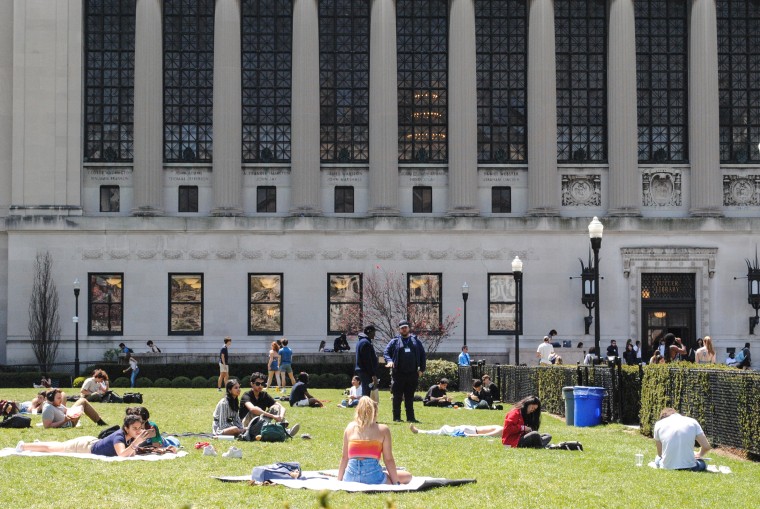
A handful of people who appeared to be security guards in plainclothes circled the planned site of Thursday’s protest before it was expected to begin.
Donovan Cole, 27, a Ph.D. student studying philosophy and education, said the student body’s attitude toward protests seems to have changed since the encampments a year ago. Gone are the days when students felt free to set up tents, take over academic buildings and march for days, as they did last spring, he said.
“There was obviously an antagonistic relationship between the student body and the institution last year. But at the core of that was a kind of faith … that they were both engaging in at least some degree of good faith,” he said. “The student body has sort of felt that’s no longer the case and, rather than producing a sort of stronger outcry of protest, has produced actual legitimate fear in the student body.”
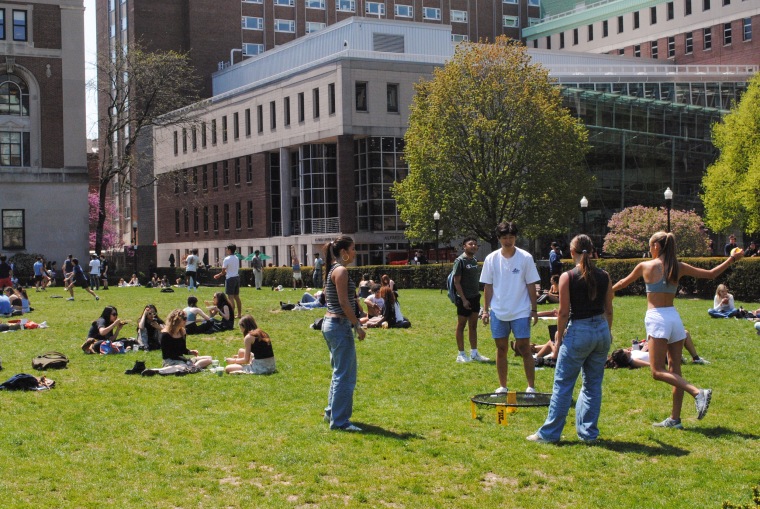
Last month, the Trump administration began terminating federal research grants at several of the country’s most prestigious universities, demanding significant changes to how schools operate. The administration has argued that the universities failed to protect Jewish students amid war protests.
Columbia was the first university the administration targeted. It conceded to a number of the government’s requests, including that it adjust its admissions process, implement “greater institutional neutrality” and hire three dozen new security officers.
The administration similarly challenged Harvard University, which rejected its proposals and sued the federal government.
On Wednesday, President Donald Trump signed a series of executive actions that would enforce stricter oversight of foreign donations to universities and change how they are accredited.
Immigration authorities have apprehended at least three Columbia students in recent weeks. Among them was graduate student Mahmoud Khalil, who helped lead student protests last year.
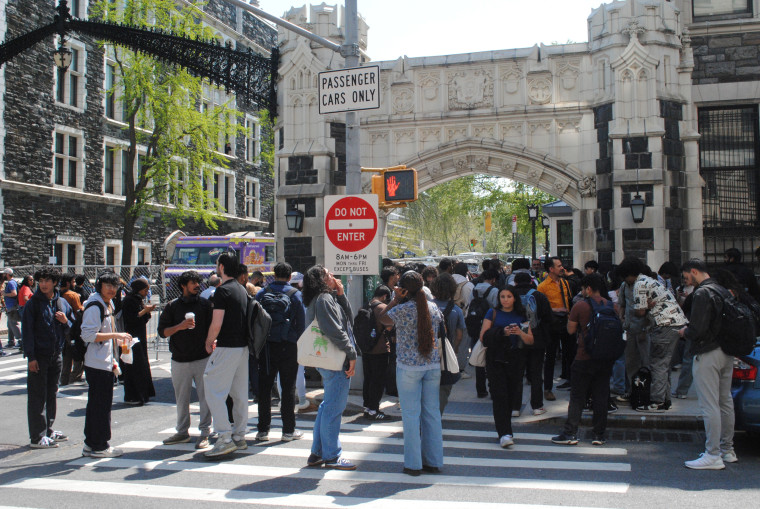
About 45 minutes after the protest at Columbia was expected to start, pro-Palestinian student advocates affiliated with City College of New York announced on social media that they were staging a protest at the nearby public college.
It is unclear whether protesters who had intended to be part of the planned Columbia encampment were among the roughly 50 people who gathered outside CCNY’s gates Thursday afternoon, wearing masks and Palestinian keffiyehs.
However, a student protest group affiliated with Columbia shared the CCNY group’s post on social media.
CCNY closed its gates and appeared to start barring students from entering campus while the protest ensued.
On Tuesday, a crowd of protesters at Yale University set up a handful of tents on campus before they disbanded a few hours later.
-
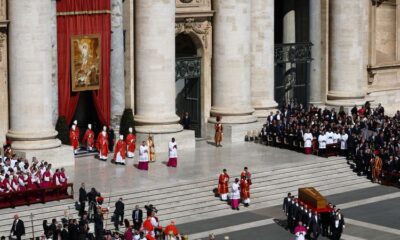
 Europe2 days ago
Europe2 days agoFrancis celebrated as ‘pope among the people’ in Vatican funeral attended by massive crowd
-

 Europe2 days ago
Europe2 days agoTrump and Zelensky hold war talks inside St. Peter’s Basilica ahead of pope’s funeral
-

 Europe2 days ago
Europe2 days agoLiverpool secures historic Premier League title after beating Tottenham
-
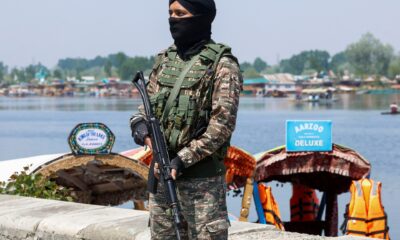
 Conflict Zones1 day ago
Conflict Zones1 day ago‘Burst balloon’: How Pahalgam attack shattered Modi’s Kashmir narrative | Narendra Modi News
-

 Lifestyle2 days ago
Lifestyle2 days agoMarket turmoil has many afraid to check retirement savings
-

 Middle East18 hours ago
Middle East18 hours agoDeadly US strike hits Yemeni migrant centre | Israel-Palestine conflict News
-

 Sports2 days ago
Sports2 days agoNew England Patriots make Kobee Minor this year’s ‘Mr. Irrelevant’
-
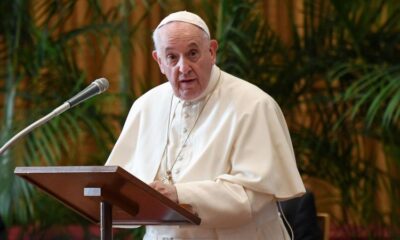
 Europe2 days ago
Europe2 days agoHow Pope Francis united a once-skeptical Church with climate action




